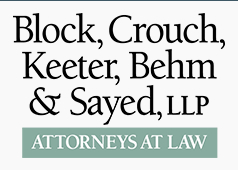We often receive inquiries from owners in common interest communities (usually either condominiums or planned) inquiring “whether the association can do that?” Most are seeking an immediate answer. While there are occasionally instances where the alleged activity of the owners’ association violates all potentially applicable, non-modifiable statutes, these are very rare occurrences. Much more often, we must initially respond that the final answer depends upon what the particular applicable statutes and governing documents state for the specific community in question. Like clothes custom-ordered from a tailor, the available options are virtually endless.
One Size Does Not Fit All
An owner may live in a condominium or planned community. Understanding which statutes may apply to a particular community is the first step in determining what laws govern.
Depending upon the age of the community, condominiums in North Carolina are usually either governed by the Unit Ownership Act (North Carolina General Statute §47A-1 et. seq.) or the Condominium Act (North Carolina General Statute §47C-1-01 et. seq.). Although the Unit Ownership Act only governs condominiums voluntarily submitted to that Act before 1986, condominium communities of both types are still fairly common in the Cape Fear region.
Since 1999, most single-family residential developments of a certain size in North Carolina are governed by the Planned Community Act (North Carolina General Statutes §47F-1-101 et. seq.).
In most instances, the Nonprofit Corporation Act (North Carolina General Statute §55A-1-01 et. seq.) also serves as a “gap filler” when either the Unit Ownership Act, Condominium Act, or the Planned Community Act are silent about the operation of a community. However, unincorporated condominium associations are allowed in North Carolina, in which case the Unincorporated Nonprofit Act (North Carolina General Statutes §59B-1 et. seq.) applies.
(Most) Everything Can Be Customized, but Not Always on the Public Record.
To make matters more complex, the entire Unit Ownership Act was voluntary in its application, and signification portions of the specific statutory provisions in both the Condominium Act and in the Planned Community Act are expressly modifiable by a particular community’s: 1) articles of incorporation; 2) declarations; and/or 3) bylaws (collectively, “governing documents”). Thus, the Acts are much like a piece of raw fabric, onto which developers of a particular community can (and usually do) sew a variety of unique textures, colors, and accessories.
While articles of incorporation are filed with the North Carolina Secretary of State, and declarations must be recorded with the Register of Deeds for each county in which a portion of a community is situated, neither the Condominium Act nor the Planned Community Act requires that by-laws be filed or recorded anywhere on the public record, and often they are not.
Your Governing Documents are Important!
Since such customization is legally possible in North Carolina, a careful review of the governing documents for a particular community is usually crucial in determining the legal rights of its residents and its owners’ association. While an experienced real estate or HOA attorney can often discern similarities in governing documents across various communities, there can sometimes be highly-customized provisions that are unique to a single community. Thus, it usually is difficult to reach conclusions on any given issue until a full statutory and governing documents review is performed.
Make Sure You Know the Options Before You Buy!
Sometimes, we learn inquiring owners do not possess, and have never even read, the governing documents for their common interest community before purchasing within them. This is akin to walking into a custom tailor shop and expecting to be happy with any garment off the rack. Sometimes you might be surprised (and disappointed) with what you receive! For this reason, we strongly recommend that you familiarize yourself, and make sure you are comfortable, with the governing documents for your common interest community before deciding to purchase within one. And please make sure you keep copies of the governing documents handy for the future (especially those, such as bylaws, which may not be recorded), just in case you ever need to ask “whether the association can do that?”
